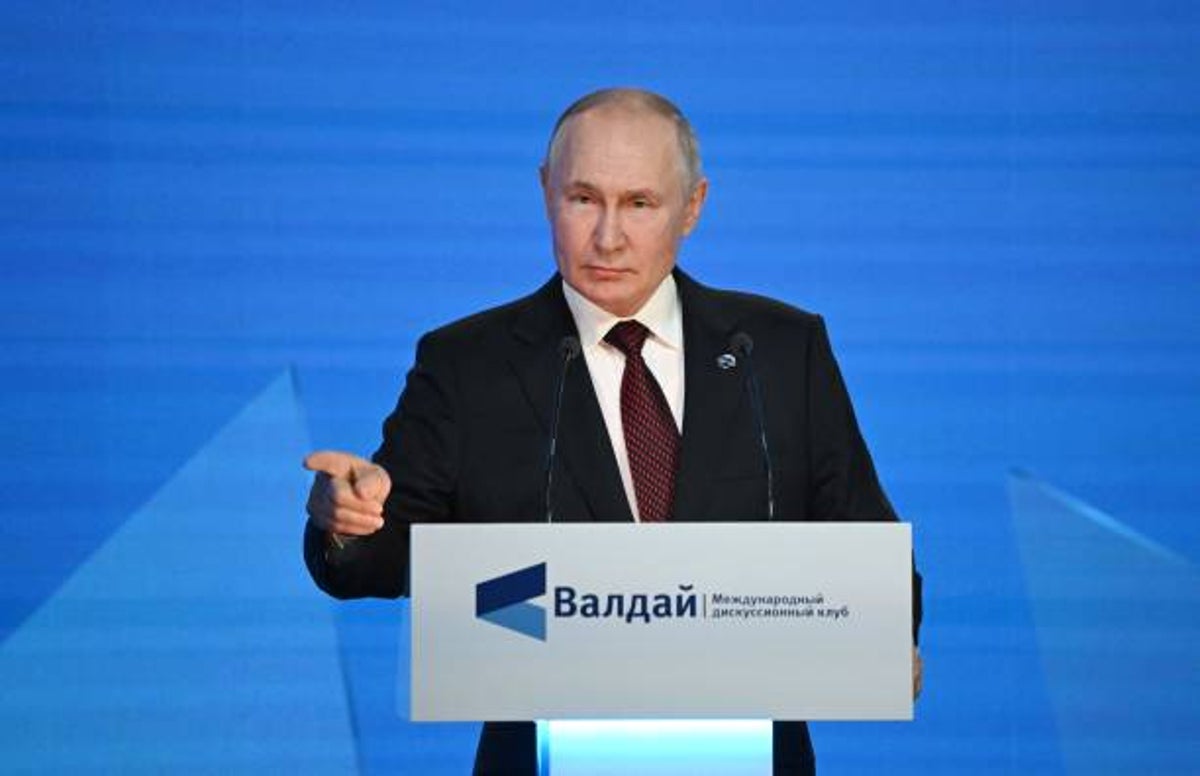
Russia plans to withdraw its ratification of the 1996 treaty that prohibited the testing of nuclear weapons, the country’s envoy to the Comprehensive Nuclear-Test-Ban Treaty Organisation [CTBTO] said on Friday.
“Disturbed” by the move, the US denounced it as endangering "the global norm" against nuclear test blasts.
The announcement by Mikhail Ulyanov on Friday added new fuel to tensions between Russia and the United States over Moscow’s invasion of Ukraine and arms control disputes between the world’s largest nuclear weapons powers.
Mr Ulyanov, Moscow’s envoy to the CTBTO, said on X, the social media platform formerly known as Twitter, that "#Russia plans to revoke ratification (which took place in the year 2000) of the Comprehensive Nuclear-Test-Ban Treaty."
"The aim is to be on equal footing with the #US who signed the Treaty, but didn’t ratify it. Revocation doesn’t mean the intention to resume nuclear tests," he said.
The CTBT has been signed by 187 countries and ratified by 178 but cannot go into force until eight specific holdouts have signed and ratified it. China, Egypt, Iran, and Israel have signed but not ratified it. North Korea, India and Pakistan have not signed.
While the United States signed but did not ratify the treaty, it has observed a moratorium on nuclear weapon test explosions since 1992 that it says it has no plans to abandon.
"We are disturbed by the comments of Ambassador Ulyanov in Vienna today," a US State Department spokesperson said in a statement. "A move like this by any State Party needlessly endangers the global norm against nuclear explosive testing."
It said that Russia should not be “wielding arms control and irresponsible nuclear rhetoric in a failing attempt to coerce other states”, in an apparent reference to Moscow’s efforts to pressurise countries into withdrawing their arms support and aid to Ukraine.
Mr Ulyanov’s statement came a day after Russian president Vladimir Putin said that Moscow could look at revoking its ratification of the CTBT.
He argued that Russia could mirror the stand taken by Washington.
“Theoretically, we may revoke the ratification,” he said, after Moscow successfully tested an experimental nuclear-powered cruise missile.
Moscow last tested a nuclear weapon in 1990, before the collapse of the Soviet Union a year later. It ratified the global test ban in 2000.
Many Russian hawks have spoken in favour of resuming the tests, since its invasion of Ukraine, in February last year.
Mr Putin said that while some experts have talked about the need to conduct nuclear tests, he hasn’t yet formed an opinion on the issue.
“I’m not ready to say yet whether it’s necessary for us to conduct tests or not,” he said.
"It would be concerning and deeply unfortunate if any State Signatory were to reconsider its ratification of the CTBT," Robert Floyd, the executive director of the CTBTO, which monitors compliance with the pact, said in a statement.
"The Russian Federation has consistently reaffirmed its strong support of the CTBT since its very inception, helping to negotiate the Treaty in the Conference on Disarmament, signing the day it opened for signature on 24 September 1996, and ratifying it in June 2000," he added.
Russian withdrawal could be a blow to the treaty since, like the eight key holdout countries, it is one of the "Annex 2" countries that must all ratify the treaty it for it to enter into force.
"I look forward to continued close cooperation with the Russian Federation and all States that have committed to creating a world free of nuclear testing," Mr Floyd said.







